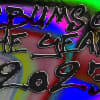“Is R&B still a useful label, or is it time to dispense with the genre altogether?” That was the premise of a panel Friday night (10/2) at the New Yorker Festival. In attendance to mull over this question were the young singers Kelela and Azekal, along with James Fauntleroy, who makes a living writing songs for stars (Justin Timberlake, Beyoncé), and Bilal, who was associated with the neo-soul movement when he emerged in the early ‘00s, but has cut an unpredictable, idiosyncratic path since then.
The panel was dubbed “The New R&B”—a provocative title and one that may say more about the preoccupations of critics than the genre itself. The New Yorker convened the session, though the magazine didn’t cover R&B much in the ‘00s. But in the last few years, the publication has pushed the idea of a fresh start for the genre: see a 2012 column on Frank Ocean—titled “Sea Change: Frank Ocean and the new R&B”—and a 2014 article about Kelela and FKA Twigs, which also had “The New R&B” in its subtitle.
At The New Yorker Festival, Kelela wasted little time in dismissing the idea that today's R&B is really "new"—after all, radical changes have been hiding in plain sight for years on albums by Janet Jackson, Mary J. Blige, R. Kelly, and others. “The way that I sing—it is not just a style,” Kelela asserted. “It is not simply a hat I’m putting on today. There is a rhetoric right now… like the ‘old’ [R&B] wasn’t so sophisticated, but the ‘new’ one is so acceptable, and it has received white approval. I find that problematic, especially because that name is put on me a lot. But what about all the other people who have been doing this music for a very long time? It’s not new. It does piss me off for it to be seen as a new thing—now it’s sophisticated? The rhetoric around it is, ‘it’s been stepped up y’all. So now we can listen to it.’”
Of the four speakers, Azekel was the least verbal, but he also broke his silence to support Kelela’s assertion. “The whole thing about ‘progressive R&B’ blows my mind,” he noted, shaking his head. “Black music has always been progressive.”
The panelists were cheerfully argumentative throughout the night, directing most of their ire towards the record industry. (The site Pitchfork and the term “PBR&B” also attracted a few barbs.) Fauntleroy was particularly amusing on this subject, telling a series of stories about obnoxious record executives saying things like “urban music doesn’t mean shit“—even as they bought his songs and made money when they became hits. “The executive community doesn’t even want to understand why we’re up here,” he added, gesturing to the stage.
While Fauntleroy jovially threw darts without revealing his targets, Bilal served as his terse but equally cutting counterpart. His comments were brief, to the point, and delivered in a low monotone: “that makes me happy when I can confuse people;” “all Beatles records sound like R&B;” “What American music is not black music?” (Occasionally he was more difficult to decipher: “the world is so informed now that if you tell the truth, people think it’s a lie.”)
Bilal was the senior member of the panel and he likely has plenty to say about the danger of genre labels and cruelty of record labels. Like many singers associated with neo-soul, he struggled to find his footing when the bubble burst, and didn’t put out an album between 2001 and 2010. It would have been interesting to hear his perspective on the similarities between the two moments, but he kept those thoughts to himself.
Instead, aside from the occasional cliché nuggets about the state of the world—“Cats have been writing songs forever about how the world is dying, and the world is still dying, no one gives a shit”—the thing that seemed to worry Bilal the most was the encroachment of hip-hop. “R&B is gonna turn into hip-hop,” he warned at one point. He reiterated that later in the evening, lamenting that no one looked to R&B for radical statements anymore: “I’ve said it before: R&B, if you really want to do anything, is hip-hop… you really want to be radical, you’ve got to be hip-hop.” His tone suggested he was unwilling to make this type of stylistic concession.
At the moment, he’s settled on a compromise, singing with the likes of Kendrick Lamar to help fund his own left-of-center projects. “It’s never been about money for me,” Bilal explained. “It’s always been about art. You take money out of the situation, and they can’t really entice you so much.”
But the presence of label money and creativity don’t have to be at odds. Fauntleroy injected a quick history lesson into the conversation: “When Stevie Wonder and Prince and all these different motherfuckers were having hit songs,” he noted, “people were not smarter or dumber than they are right now. There were still billions of dumbass people who were loving Stevie Wonder.” There’s humor in that statement, but also an acknowledgement that R&B has always had the potential to be both radical and popular.


